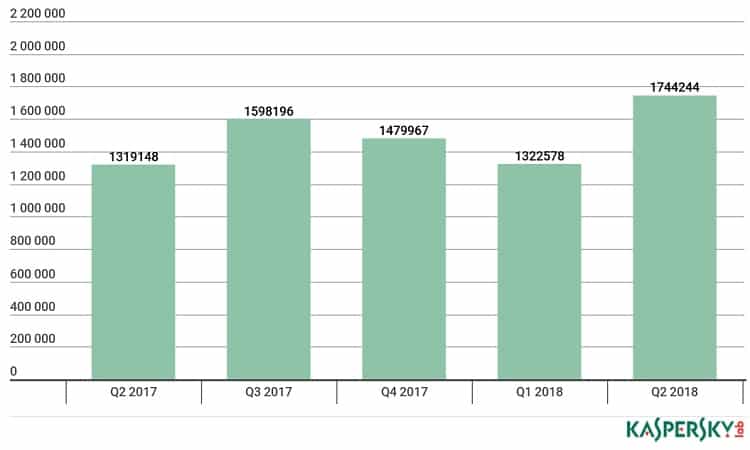According to the Malaysian Communication and Multimedia Commission Hand Phone Users Survey, the percentage of smartphone users continue to rise from 68.7% in 2016 to 75.9% in 2017. While awareness to protect personal data among Malaysians has increased with 64.5% of users vigilant in protecting their hand phone using passwords and 44.5% backing up their photos and contacts. However, the number of Malaysians with mobile device security solutions on their smartphones is still low.
“Smart device users need protection for their devices. When you buy a PC or laptop, the first thing most people would do is to install an antivirus solution. However, the same cautious approach does not apply to smart devices like smartphones and tablets. Instead, most would install the physical essentials such as screen protector or protective case when they purchase their new smart devices,” says Yeo Siang Tiong, General Manager, SEA, Kaspersky Lab.
Siang Tiong added that majority of people relying heavily on smart devices, on calendar reminders, emails, contacts, making payments using e-wallets and online banking.

“We used the Malaysian Book of Records as a platform to raise the awareness so more users will take the similar precautious approach on their smart devices. Mobile device security goes beyond password-protecting a device, and backing up data serves as an extension of your brain. As mobile devices become the primary device for more people, identify theft becomes easier, as online banking and in-app e-commerce transactions become more frequent. The need to educate on securing mobile devices is urgent. This is why Kaspersky Lab held this record-breaking mobile device security activation drive in conjunction with our 20th anniversary,” Siang Tiong added.
Data released by Kaspersky Lab in its IT threat evolution Q2 2018 report show that the brand detected 1,744,244 million mobile malicious installation packages, which is 421,666 packages more than the previous quarter. The mobile banking Trojans also on the rise, 3.2 times more than Q1. Mobile ransomware Trojans also on the rise, with 14,119 installation packages detected.


